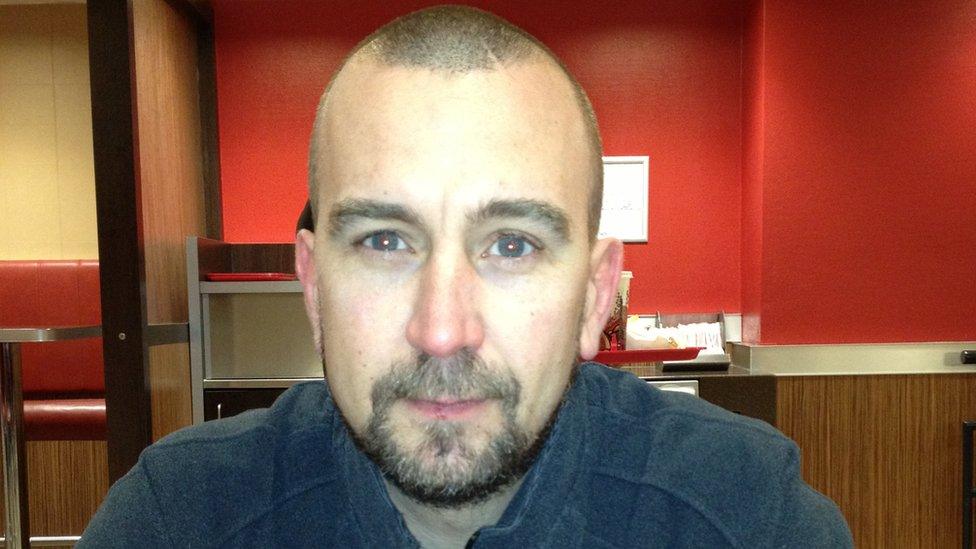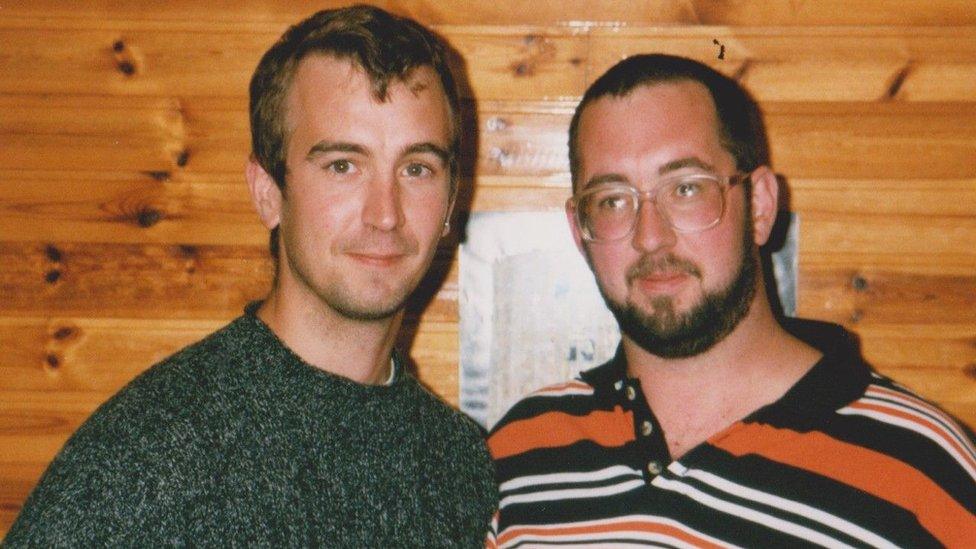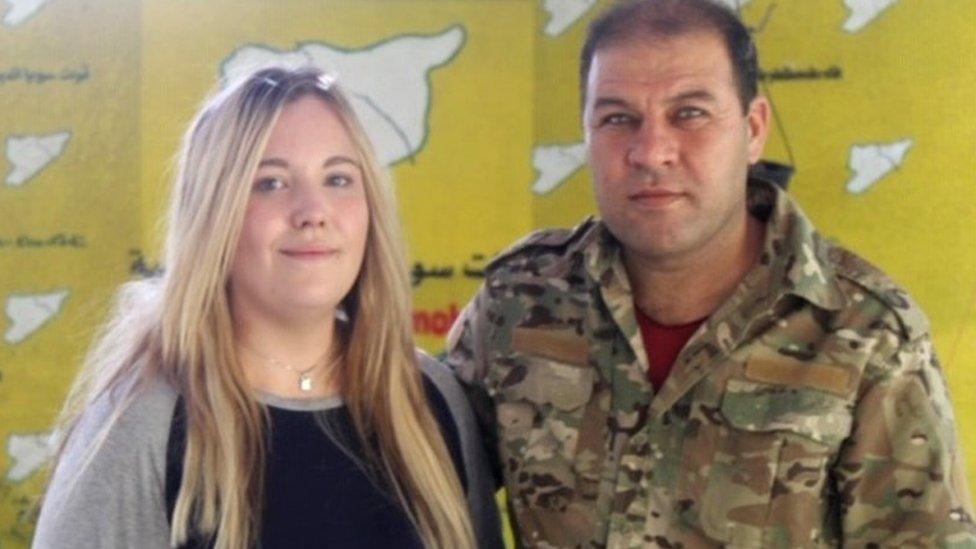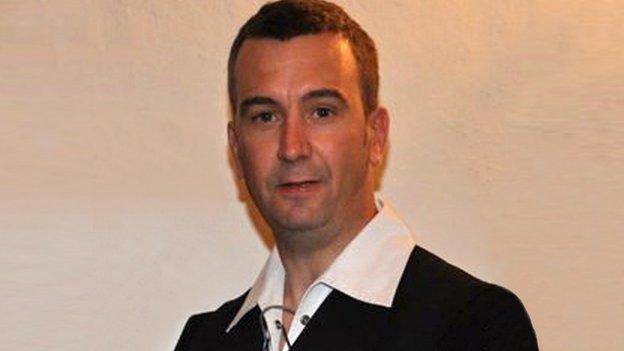David Haines' brother fears youth radicalisation during lockdown
- Published
Mike Haines talks about his brother.
The brother of a Scottish aid worker who was beheaded by the Islamic State group in Syria has warned the UK is at a radicalisation "crossroads" during lockdown.
Mike Haines said young people were now at particular risk of being groomed by extremists.
David Haines, 44, who lived in Perth, was abducted by IS in 2013 while working in a Syrian aid camp.
His killing was filmed and released in 2014 as part of IS propaganda footage.
He was murdered, with fellow aid worker Alan Henning, by the so-called "Beatles" cell of four British militants.
Mike Haines, who has visited schools to discuss fighting terrorism since his brother's death, described the current situation as "grave".
He said he was "determined to be a positive force", despite initially seeking revenge against his younger brother's killers.
Mr Haines, 54, said the greatest weapon people had in fighting homegrown extremism was to "talk to young people, understand them, and don't push them to the fringes".
He told the PA news agency: "The situation just before lockdown was grave, and it's only got worse."

David Haines was working for a French aid agency when he was captured by Islamic State militants
Speaking anecdotally, he added: "There has been more online grooming of youths for all extremism.
"Teachers and police have told me that cases of online grooming - and I use that word because there are so many similarities between the steps extremists take and the steps paedophiles take - have gone up.
"People are getting pushed to the fringes of society. They have a feeling that they don't belong.
"So I believe we are now at a crossroads."
His comments echo those of senior police officers, who warned a month into lockdown that bored and isolated youngsters could be more susceptible to radicalisation as they spend longer online.
Police officers also reported a "significant" drop in the number of reports being made to the anti-terror Prevent programme in the wake of school closures in March.

David and Mike Haines pictured in the late 1990s
Mr Haines, from Dundee, was speaking after legal developments last month meant the two British-raised jihadis suspected of killing his brother and several other Western humanitarians edged closer to going on trial.
Alexanda Kotey and El Shafee Elsheikh, both from West London, have been in US custody for months over the deaths.
Mohammed Emwazi - the group's ringleader who is also known as Jihadi John - was killed in a US air strike in 2015, while Aine Davis is in jail in Turkey for terror offences.
Vulnerable people
Mr Haines, who runs education charity Global Acts of Unity, said he remained hopeful that people would "stand up and be a positive force" in an attempt to prevent vulnerable people from radicalisation.
He said: "The voices of hatred are loud and in all sorts of places.
"The thing that the average person in the street can do is think about how their own actions impact on others.
"Kindness is the greatest force in this world - kindness to your neighbours, the homeless man on the street, the migrants, the people with Covid, everyone.
"Hate is loud but kindness is strong and deep, and it affects people in a more positive way than hatred does in a negative way."
Mr Haines is due to be featured in BBC Two series In the Face of Terror, which begins on Monday night with a focus on the so-called "Beatles" terror cell.
- Published24 December 2019

- Published14 September 2014
